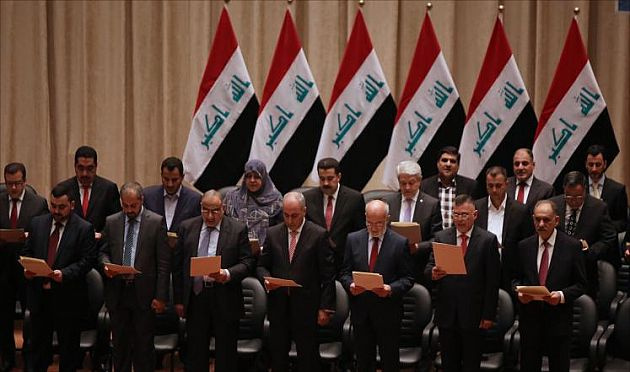Attempts toward Direct Interaction between Government and Parliament

Many people talk, of course righteously, about the existing shortcomings in the Iraqi constitution. Others complain about the existence of contradictory laws and bureaucracy in this country. But the real rift which is considered as the basis of the crisis in Iraq and practically challenges the activities of the government is our behavior and interactions with the laws and executive institutions.
Questioning the ministers and other employees of the government is the simplest and most important issue of democracy whose objective is raising transparency and highlighting the realities and watching the activities of the officials so that people could vote for them and be assured of their vote of confidence. This task is not accusation or trial, but rather intended to remove the ambiguity of an issue about which the Member of Parliament is not aware. The government must explain its measures so that the parliament would be aware of its path as it is stated in Article 50 of the parliament’s rules and regulations.
The objective behind ministers’ hearings in the parliament is to evaluate their actions within the framework of their responsibilities. This is a natural and routine matter which is pursued in all countries of the world. But when an official refuses to attend his hearing in the parliament, he is, in fact, paving the way for his removal. That is why every hearing leads to the formation of a huge file and prolonged negotiations which then enter the media and create deals and threats and, sometimes, revenge. The basis of hearings is to hear the documented truth from the person in charge so that the principles are safeguarded and, if a mistake is made, the officials in charge act according to their legal responsibilities. But when the hearing is postponed or cancelled, then harsh actions would be taken by both sides. This issue will damage the process of democracy and create political disputes and disappoint the people with regard to this process. Then there will be corruption and the government will not be able to perform its task.
The two executive and legislative bodies are responsible for the path which might lead to the closure of the government. Both of them are also responsible for making reforms. The successful attempts made in different countries of the world regarding their parliaments show that the prime minister and the ministers have permanent offices in the parliament in order to establish direct interaction so that they would be able to constantly respond to parliament’s questions. Therefore, the executive officials attend the parliament sessions whenever they are asked in order to respond to the parliamentarians’ questions and remove the ambiguities. Hence, a relation is created between the parliament and the government which would prevent the prolongation of the issues of concern and remove the obstacles. Furthermore, the adoption of laws would accelerate and people’s needs would be met in the fastest possible way. This measure could prevent the political suffocation which could threaten the foundations of any political establishment.
The hearing of Iraq’s prime minister which was recently carried out was a very good measure which was welcomed by all ministers and officials and was considered as a good experience which must be transformed into a tradition in the political process of the country.

